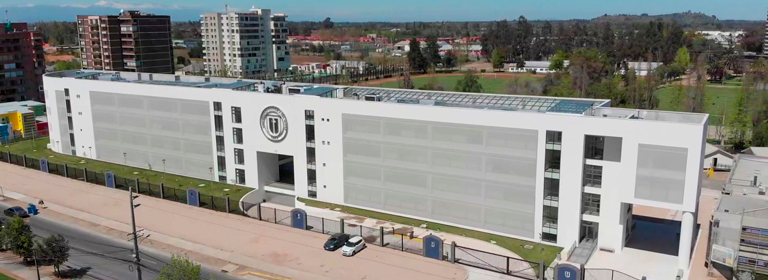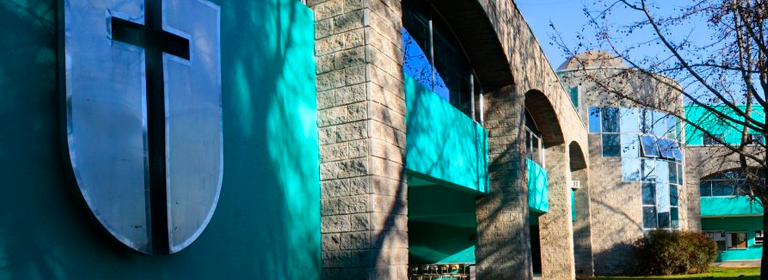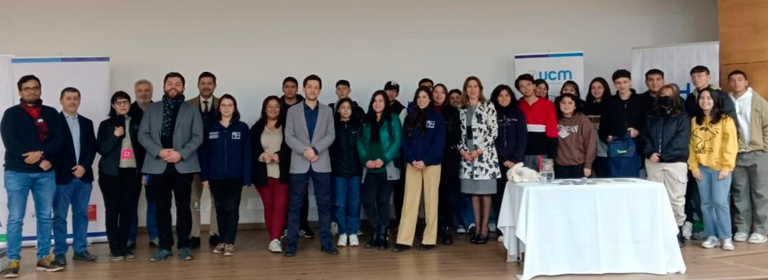Focused on the training of front-line researchers, the postgraduate courses in Didactics of Experimental Sciences and Mathematics at the Universidad Católica del Maule (UCM for its acronym in Spanish) seek to generate substantive transformations in the teaching and learning of both disciplines.
 In any age, beyond the material resources and dominant social aspirations, the most important instrument of investigations is usually the researchers themselves. In being aware of this, and with a permanent spirit of instructing professionals in the complex and delicate art of research, the Universidad Católica del Maule concentrates its efforts on installing advanced capacities in the region and the country.
In any age, beyond the material resources and dominant social aspirations, the most important instrument of investigations is usually the researchers themselves. In being aware of this, and with a permanent spirit of instructing professionals in the complex and delicate art of research, the Universidad Católica del Maule concentrates its efforts on installing advanced capacities in the region and the country.
“Our goal is to train high-quality researchers theoretically and methodologically, who address problems in the region regarding science teaching and science teacher training in diverse sociocultural contexts,” said Dr. Yefrin Ariza Bareño, Director of the doctorate in Didactics of Experimental Sciences at the UCM; one of the two postgraduate courses of this type that exist in Chile.
“We present ourselves as a reference for others because we have the first PhD in Didactics of Experimental Sciences in the south-central area of the country and the only one available today (…). We project ourselves as a space for the research and development of Chilean scientific education, which is the basis for the progress of any country,” he said. Inaugurated last March in the campus in Talca, the program is committed to train a generation of experts in the teaching of biology, chemistry, physics, and geology. “The postgraduate course is linked to national and international researchers and associations, such as the Latin American Network for the Didactics of Natural Sciences, and the Chilean Society for Scientific Education. It is of great importance, at a national and Latin American level, because it consolidates highly impactful science education and materializes research advances that have been developed in Chile in recent years, responding to the demand of future researchers who had to travel to Argentina, Brazil or Spain to be able to train”, specified the authority.
Dr. María Aravena Díaz, Director of the Mathematics Didactics Doctorate at UCM, also highlighted the need for researchers dedicated to the teaching and learning problems of the discipline. “The Didactics of Mathematics has had a sustained development during the last ten years; there is already a powerful body of researchers who have studied abroad and who have come to contribute to the country, in addition to the PhDs in Chile that have allowed the formation of advanced human capital who are capable of scientific research,” she said.
Since its inception in 2018, the program has sought to transform the education system, according to Aravena. “Improving mathematics education is a current challenge in Chile and overcoming it would be beneficial for the educational system as a whole. We are behind in comparison to leading countries”, she pointed out.
Regarding the lines of research –framed in Problem Solving and Mathematical Modeling, Teacher Training and Development of Mathematical Thought– the director of the postgraduate course stated that «we must ask ourselves what type of mathematics the country needs, which mathematics we should teach (…). We need empirical research that addresses new methods, strategies and methodologies according to the scientific and technological changes that permeate the entire society, where problem solving, and mathematical modeling are essential to train students and, thus, generate a cultural change in the educational system.”
Researchers in Philosophy and Religion
Research capacity must also be demonstrated by those interested in pursuing the Doctorate in Philosophy, Religion, and Contemporary Thought at UCM, which next call will take place in 2023. Its director, Dr. Rafael Miranda Rojas, assured that the purpose of the postgraduate course is to train researchers with an interdisciplinary outlook. «The academic body constitutes a specific strength of the program, having postgraduate research and teaching as one of its central axes,» he emphasized.
Like the other eight doctorates of the institution, the postgraduate degree attached to the Department of Religious and Philosophical Sciences tries to promote international scientific collaboration, in an environment of intense academic exchange. «The program has various agreements both nationally and internationally, which allow us to project growth in student connections and mobility,» said its director.
Those who wish to pursue a postgraduate degree to explore a scientific career can review the varied offer of the campus on the Internet page vrip.ucm.cl.













